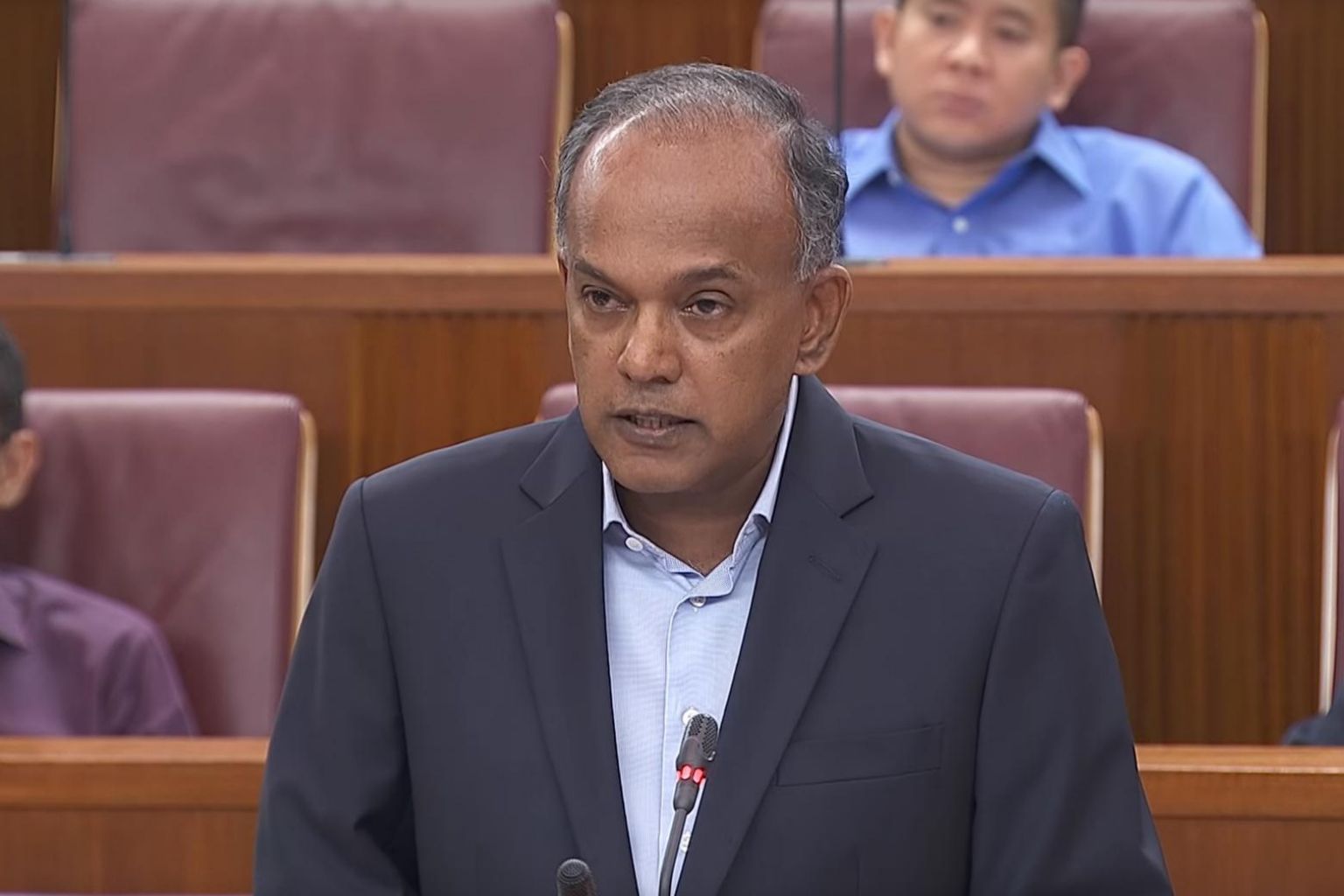Select Committee to examine fake news threat in Singapore
Vote to form panel of MPs unanimous, but some warn against heavy-handed legislation
Sign up now: Get ST's newsletters delivered to your inbox

Law and Home Affairs Minister K. Shanmugam said Singapore is susceptible to disinformation campaigns trying to interfere with democratic processes, destabilise societies and undermine institutions.
PHOTO: YOUTUBE/GOV.SG
Ng Jun Sen
Follow topic:
As the reach and impact of fake news grows, Parliament has voted unanimously to form a committee of MPs that will recommend how Singapore should tackle the problem, including possibly passing new laws.
This followed a debate in the House yesterday, during which backbenchers raised their concerns about online disinformation which has manifested itself in a number of hoaxes here, but also cautioned against "heavy-handed" legislation.
With all 80 MPs who were in the House at the time - including eight of the nine Workers' Party MPs - voting yes, the committee will canvass for public feedback once formed. It will comprise 10 MPs - seven from the ruling People's Action Party, one from the WP, one Nominated MP (NMP) and the committee leader, Deputy Speaker Charles Chong.
Forming a Select Committee to examine a policy is a rarely used parliamentary procedure. The last time one gave policy recommendations was in 2004, for a Bill on building maintenance and management.
Yesterday's motion was proposed by Law and Home Affairs Minister K. Shanmugam who also submitted a Green Paper on the issue. Singapore, he said, is highly susceptible to organised and deliberate disinformation campaigns trying to interfere with democratic processes, destabilise societies and undermine institutions.
Forming a Select Committee will allow for broad dialogue, and for Singaporeans to hear directly from experts as well as voice their own concerns or suggestions, he added.
The dangers of fake news were also emphasised by Communications and Information Minister Yaacob Ibrahim, who brought up the advent of new video and audio editing technologies that can easily allow perpetrators to impersonate others, including heads of state.
"We are a small and multiracial society that can be easily overwhelmed by a larger adversary taking advantage of our societal fault lines," he said.
A total of 11 MPs and NMPs came forward to support the move in a three-hour-long debate, highlighting their own encounters with fake news and suggesting solutions.
Mr Seah Kian Peng (Marine Parade GRC), who is FairPrice's chief executive, said he still receives feedback over a 2007 fake story of "halal pork" allegedly being sold in FairPrice outlets, which went viral on the Internet and caused a stir.
Others voiced their concerns over the freedom to express opinion, pointing out that a heavy-handed approach can stifle legitimate dissenting views.
Mr Seah said: "Heavy-handed legislation may backfire on the Government, acting as the judge, jury and executioner of what constitutes credible information. We may end up freezing free speech online."
NMP Kok Heng Leun queried if existing legislation is adequate, while Ms Lee Bee Wah (Nee Soon GRC) asked the committee to be mindful of measures introduced that could be used to silence government critics or the opposition.
Addressing the concerns, Mr Shanmugam said the precise form and ambit of any measure to be proposed is something for the Select Committee to consider. "My own view is that combating falsehoods is not contrary to the exercise of freedom of speech. In fact, keeping falsehoods out of our discourse enables freedom of speech to be meaningfully exercised," he said.

